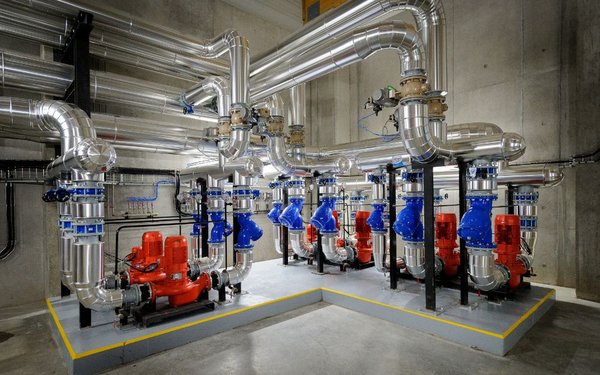
Technical incompatibilities hinder the development of installations integrating more renewable energies (wood-energy, geothermal, recovered heat...). The RES-DHC project addresses this problem, with the aim of accelerating the transition of heating networks to 100% renewable energies, as defined in the French Low Carbon Strategy for 2050 and the Energy Plan for 2028.
Developing renewable energy sources in heating and cooling networks
The RES-DHC project is funded by the European Horizon 2020 programme and brings together a consortium of 15 partners whose objective is to increase the share of renewable energy in current district heating and cooling systems in the European Union.
The project aims to support key stakeholders (local authorities, heating network operators, engineering offices, industry, public and private financiers, policy makers, etc.) in achieving the objectives of the European Renewable Energy Directive (RED II) by increasing the share of renewable energy in district heating systems by at least 1%.
The 15 European project partners:
|
Experiment the RES-DHC toolbox!
You will find a panel of free access tools that exist at European level to integrate renewable energies in heating and cooling networks: mapping, sizing, guides, virtual tours...
Development and implementation of RES-DHC in Auvergne-Rhône-Alpes region
Exchanges between regional players were organized end of 2021 by AURA-EE and CEA, pilots of the RES-DHC project in Auvergne-Rhône-Alpes. These meetings aimed at studying how to remove technical obstacles and imagine new economic, legal and technical models (such as storage, power-to-heat, energy networks, solar thermal, geothermal and waste heat).
A regional strategic committee made up of local authorities, professionals from the heating network sector and regional institutional players, drew up a regional roadmap at the end of 2021, with 4 axes and 10 actions.
Among the selected actions, a mapping module of heating networks and thermal renewable energy potential will be developed in the TerriSTORY® data-visualization webtool in 2022. The ENRSim and Picsol softwares are also being deployed to stakeholders. In addition, support for project owners is planed to find technical solutions to decarbonize networks.

The challenges of developing thermal Renewable energy potential
For several years, development of heating networks by local authorities in their territories has made it possible to mobilize renewable energy sources (wood energy, geothermal energy, recovered heat, etc), difficult to access and complex to exploit in urban areas. However, technical incompatibilities still exist and can sometimes slow down the development of "cleaner" installations.
RES-DHC project aims to develop the use of renewable energies (RES), particularly low temperature, in heating networks. At present, it is difficult to consume these renewable energies because of their incompatibility with current network’s operating temperatures. One of the objectives of RES-DHC will be to encourage heating network owners (local authorities) and operators to develop solutions for optimising operating temperatures of their installations. Furthermore, the renewable energies thermal potential of our territory is still untapped (either on geothermal, thermal solar energy or waste heat). The project aims at making this data available to local authorities and developers.
→ Thus, the project aims to modernise, extend and densify these networks by directing them towards the use of clean energy to fulfil the national and European objective of energy transition.
Key figures :
|
[Updated : April 2022]


Imprimer